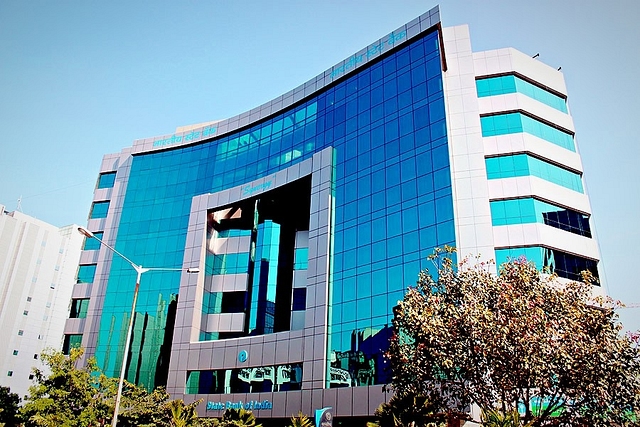
Bank Holding Company Possible As Modi Government Inches To Favourable Numbers In Rajya Sabha
Owing to favourable numbers in the Rajya Sabha after polling scheduled on 23 March, the government might be re-considering plans of a bank-holding company, Business Standard has reported.
The suggestion of Bank Holding Company (BHC) structure is not new. It has been recommended by several experts and endorsed by the P.J. Nayak Committee. It essentially involves divesting the government’s shareholding to below 52 per cent and routing it through a holding company. BHC is also envisaged to be professionally and efficiently managed by bankers, including from the private sector, without interference from the bureaucracy or the political leadership.
During his 2015-16 budget speech, Union Minister Arun Jaitley had announced the setting up of autonomous Bank Board Bureau (BBB) in order to improve the governance of Public Sector banks. The Finance Minister had also said that this would be an interim step before eventually establishing a holding and investment company for banks.
The BBB was subsequently constituted under the chairmanship of former Comptroller and Auditor General of India (CAG) Vinod Rai. In addition to the Chairman, three ex-officio members and three expert members were also appointed. The BBB, which started functioning from 1st April, 2016 was mandated with the selection heads of Public Sector banks and help them develop differentiated strategies and capital raising plans through innovative financial methods and instruments. However, despite the constitution of BBB, all the governance functions including the vital task of selecting the bank chairpersons continues to be controlled by the Ministry of Finance.
An optimal solution of privatisation of all but a handful of strong public sector banks, and even the establishment of holding or investment company would however require amendments to the banking nationalisation acts of the sixties and eighties. Currently the Modi government does not have a majority in the Rajya Sabha, and denationalisation, and subsequent privatisation run the risk of adverse opposition from politicians and unions.
However, the expected reconfiguration of the Rajya Sabha provides an window of opportunity for the government. Polling for 58 Rajya Sabha seats, set to fall vacant in April, will take place on March 23. The ruling Bharatiya Janata Party (BJP) and its allies (including Nitish Kumar’s Janata Dal-United) are expected to inch closer to 100 seats in the Rajya Sabha in April — though still short of the halfway mark of 123.
Dr Y V Reddy, former governor of the Reserve Bank of India had proposed the idea 15 years back. He had suggested that all public sector banks could be converted into companies and accorded flexibility for changes in ownership, mergers, acquisitions, sound corporate governance and motivation for the workforce to compete effectively.
He had also advocated professionalising the ownership functions and ensure that portfolio is shuttled around to optimise public interest, a holding company of public sector banks can be formed to which all shares held by Government and RBI are transferred.
In his speech, he had said, "The mandate for holding company can be threefold, which is fiscal neutrality, protecting the interests of those banks that are serving a special public purpose by infusing resources and enhancing bank-wise, genuine board management and worker motivation to cope with paradigm shifts occurring in the banking industry. The critical element for success here is manning of holding company, but Government will be able to devote significant attention to a focused task compared to several tasks of many institutions."